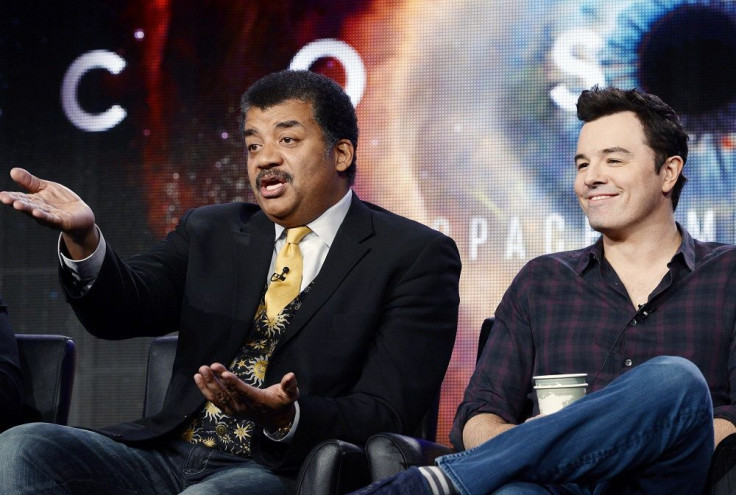Neil deGrasse Tyson Talks About Own Podcast, StarTalk

American astrophysicist, cosmologist, author, and host of the show Cosmos Neil deGrasse Tyson is taking the podcast market by storm with his top-rated and acclaimed show, StarTalk. Having premiered in 2009, StarTalk is currently one of the most downloaded and listened podcasts because of its unusual format and exciting episodes. The show is so popular and influential that National Geographic picked it up for a television show, which is described as the first “late night science-themed” talk show on television.
StarTalk explores Tyson’s vast knowledge and influence on space and science, mixing popular culture and comedic relief with interesting facts, resulting in an entertaining stretch of time. Tyson brings in influential people from different fields of culture as guests, talking about random themes on science. The show delves into more relatable topics with science fiction. In one episode, Tyson discusses Star Trek’s legacy with George Takei, one of the original actors of the film. Popular guests include astronaut Buzz Aldrin, Morgan Freeman and the late comedian Joan Rivers
Being the director of the Hayden Planetarium in New York and a former astrophysics researcher for Princeton, Tyson has made countless television and radio appearances when it comes to science-related topics. Tyson’s knowledge about space made him America’s “premier science communicator,” as labeled by Web site Vox. When asked about the purpose of StarTalk, Tyson said that the show wishes to make science accessible even for non-believers.
“The greatest goal is to bring science to people who know that they don’t like science. My guests are hardly ever scientists. They’re people hewn from pop culture. And I – the interviewer – am the scientist, not the journalist. If a journalist is interviewing scientists, you pretty much have to know in advance that you like science [in order] to tune in,” Tyson said in an interview with Space.com.
“StarTalk is a three-strand braid between science, humor, and pop culture. And that braid is an important recipe for how we are delivering science to the public,” he added. The show is partially funded by the National Science Foundation, after being snubbed by several entities and research companies. Polymath producer and NASA astrobiologist, Helen Matson, developed the show in 2008 and has kept it running since then.
Science is one of the most popular categories when it comes to podcasts, with big media outlets dedicating channels for their science shows. The Guardian, in particular, takes pride in its extensive selection of science-themed podcasts, discussing topics ranging from small to futuristic. Other Web sites such as Audioboom (LSE:BOOM) has categories for knowledge and the natural world, adding more diversity to science-related channels.
To contact the writer, email: vittoriohernandez@yahoo.com






